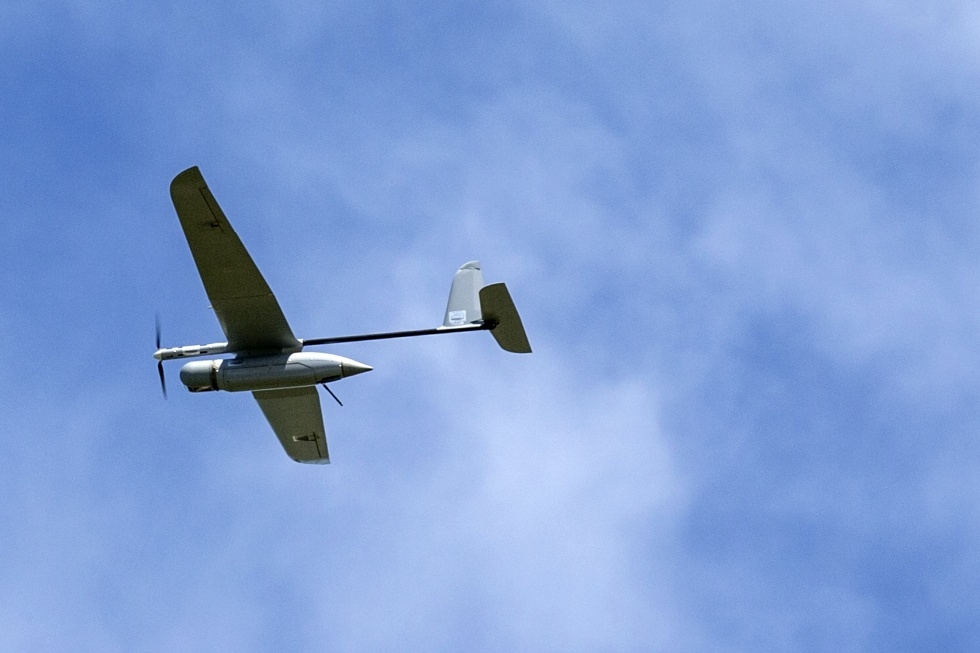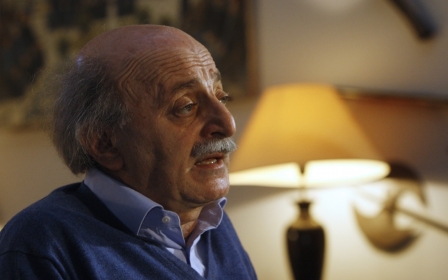'Judicial charades' in Lebanon

About five years ago, a Palestinian-Lebanese friend of mine was put in jail in Lebanon for reasons I never quite understood, but that apparently involved a large quantity of fake cement and a fake Somali ambassador.
I was in Argentina at the time and sent my friend a long letter, delivered to the jail by his sister, in which I happened to mention a visit to Buenos Aires by Israeli foreign minister Avigdor Lieberman.
As I soon found out, commenting on the travel itineraries of Israeli officials while corresponding with inmates of Lebanese prisons is not only quite boring for the recipient but also dangerously idiotic - particularly when said correspondence is intercepted by prison guards whose limited knowledge of written English includes the word Israel.
The interception of my letter coincided with two discoveries by Lebanese authorities. One, that a longtime acquaintance of my friend had been augmenting his income as a car mechanic in south Lebanon by spying for Israel. Two, that my friend had placed numerous phone calls to that same state - where, being half-Palestinian, he still has family.
My friend was thus blindfolded and placed in an underground cell for five days. As he subsequently told me, the nature of his “interrogation” was such that he prayed for death.
New MEE newsletter: Jerusalem Dispatch
Sign up to get the latest insights and analysis on Israel-Palestine, alongside Turkey Unpacked and other MEE newsletters
As for me, my passport was merely confiscated at the airport the next time I travelled to Beirut and I was asked questions for four hours, consisting mainly of variations of “Do you like Israel?” and “Are you sure you don’t like Israel?”
Spy rings, spy drones … spy eagles?
To be sure, there’s no justification under the sun for my friend’s treatment at the hand of the Lebanese security forces, which are notoriously badly behaved. But their extrajudicial performance does raise questions about the extent of Lebanon’s spy problem. Just how far-reaching is it?
A February 2010 article in the Economist cited Lebanese reports that “no fewer than 25 Israeli spy rings” had been busted over the previous 15 months, with some of the suspects allegedly on the Israeli payroll since the 1980s. The previous year, the BBC’s Jim Muir noted that the arrests had "been across the board - Sunnis, Shiites, Christians and Palestinians are all among those detained, with no obvious political or sectarian bias" - which would seem to contradict claims that the spy sweep had been orchestrated to affect the outcome of impending parliamentary elections. Muir added: “Several alleged agents who knew they were on the wanted list fled across the border to Israel”.
In 2012, a UPI dispatch opined that the ongoing wave of detentions - which included high-ranking army officers and telecommunications executives - was “exposing just how extensively the Mossad, and probably other Israeli spy services, allegedly penetrated every level of Lebanese society over the years”.
And the espionage doesn’t stop there. Listening posts have been installed along the border with Lebanon and reportedly allow the Israelis to wiretap telephone conversations throughout the country, while long-distance Israeli surveillance devices have also turned up in the Lebanese mountains, hidden in fake rocks. According to journalist Maysam Rizk, “Israel’s appetite for information has … gone beyond spying on [the] Lebanese to include the country’s diplomatic missions and the communications of the UNIFIL force stationed in the South”.
Lebanon has of course also played host to a veritable parade of Israeli drones, not to mention flying objects more jarring to the eardrum and peace of mind, such as warplanes that regularly break the sound barrier over Lebanese cities and towns. These arrangements reveal the utter hypocrisy of Israeli hysteria when a Hezbollah drone entered Israel’s airspace in 2012.
When a suspected Israeli “spy eagle” was apprehended last year in Lebanon, meanwhile, the news was mocked in the Israeli press as the ludicrous result of Hezbollah's paranoia. As though the idea of a surveillance-equipped eagle is somehow more bizarre than, say, the idea that Israeli helicopters might massacre Lebanese children at close range.
Other 'strenuous disruptions'
Israel’s penetration of Lebanese existence has been comprehensive. Historian David Hirst writes in his book Beware of Small States: Lebanon, Battleground of the Middle East:
“Several states, from inside the region and beyond, have impinged on Lebanon - wooed, bullied or sought to subvert it from within, attacked, invaded, occupied or otherwise maltreated it … But none has done so more strenuously and disruptively than the state of Israel.”
Curiously - or not so curiously - none of these Israeli “impingements” has ever merited an international tribunal along the lines of the one established to try suspects in the 2005 assassination of former Lebanese Prime Minister Rafik Hariri. The Special Tribunal for Lebanon (STL) kicked off earlier this year; as noted on its website, it “is the first tribunal of its kind to deal with terrorism as a distinct crime [and] is applying the Lebanese legal definition of terrorism, an element of which is the use of a means ‘liable to create a public danger’”.
Given its clear history of endangering the Lebanese public via, inter alia, military assaults entailing the mass slaughter of civilians, Israel appears to be more than eligible for just such a trial. According to many observers, this eligibility extends to the STL, too. During a 2011 lecture at the London School of Economics, Lebanese criminal justice expert Omar Nashabe pointed out that Israel’s conspicuous immunity from investigation for the Hariri killing is at odds with the nation’s track record of political assassinations and other kinds of interference in Lebanon. Former Israeli prime minister Ehud Barak, for example, has boasted of his participation (dressed as a woman) in a 1973 assassination mission in Beirut.
Israel’s exemption from suspicion in this case is perhaps even more intriguing considering that Hariri’s demise led to Syria’s exit from Lebanon, giving Israel freer rein for its destructive manouevres.
Impunity verdict
The STL’s suspect lineup consists of five members of Hezbollah, being tried in absentia in The Hague.
The crime scene was extensively tampered with in the aftermath of the attack, so the prosecution’s case is largely based on information gathered about cellular phone activity on the day of the assassination. This is naturally seen by some as evidence of the politically motivated nature of the trial, given Israel’s apparent manipulation of Lebanese phone networks.
According to Hezbollah Secretary General Hassan Nasrallah, video footage intercepted from Israeli spy drones indicates that Israel had been tracking Hariri’s convoy and is therefore the guilty party in the matter.
Nasrallah, of course, is far from a disinterested observer. But even the Independent’s Robert Fisk - no friend of Hezbollah - has acknowledged that, during the Israeli onslaught on Lebanon the year after the Hariri assassination - the Party of God “had actually got their hands on Israel's own aerial photo-reconnaissance pictures of [the country], clearly showing which of Hezbollah's bunkers had been identified and which had not”. This would appear to speak to the organisation’s capabilities.
Whatever the verdict of the current judicial charade, it will surely contribute to further Israeli impunity in Lebanon - you don’t need aerial reconnaissance to tell you that.
- Belen Fernandez is the author of The Imperial Messenger: Thomas Friedman at Work, published by Verso. She is a contributing editor at Jacobin magazine.
The views expressed in this article belong to the author and do not necessarily reflect the editorial policy of Middle East Eye.
Photo credit: An Israeli army's Skylark I (Rochev Shamayim) unmanned drone aircraft used for monitoring purposes flies along the border between Israel and Lebanon (AFP)
Middle East Eye delivers independent and unrivalled coverage and analysis of the Middle East, North Africa and beyond. To learn more about republishing this content and the associated fees, please fill out this form. More about MEE can be found here.





